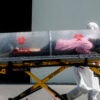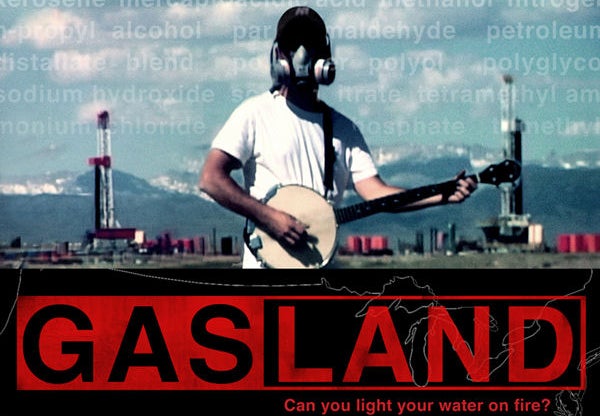The State Department is promoting a widely-debunked film about natural gas development as part of an effort at “smart power diplomacy.”
The film, “Gasland,” is widely credited with spreading hysteria about the practice of hydraulic fracturing, a natural gas mining technique under fire from environmentalists nationwide. The film purports to show the dangers of “fracking,” but many of its key findings – including the iconic image of flames spewing from a kitchen faucet – have been shown to be wildly misleading.
State announced the event in a news release last week:
The American Film Showcase builds on Secretary of State Hillary Rodham Clinton’s vision of “smart power diplomacy,” which embraces the use of a full range of diplomatic tools – in this case film – to bring people together and foster greater understanding.
Comprised of 29 American films, the Showcase represents work of high artistic quality, illustrates diverse viewpoints, and reflects contemporary American society and culture. In addition to presenting the films to overseas audiences, the filmmakers and film experts will also conduct lectures, workshops, master classes on a variety of topics including filmmaking, storytelling, cinematography, marketing, distribution and funding, animation, digital technology, and emergent media, among others.
Gasland is one of 19 documentaries to be shown. The film makes numerous factual misstatements, such as its claim that the natural gas industry is exempt from the Clean Water Act and the Clean Air Act. It routinely misrepresents the fracking process, its impacts on the environment, and government regulators’ views on the practice.
In fact, Josh Fox, the film’s director, has openly admitted that he disregarded facts in order to present hydraulic fracturing in a more negative light. The now-famous scene in “Gasland” of a faucet being lit on fire was presented in the film as evidence that nearby fracking operations had injected flammable chemicals into the area’s drinking water supplies.
But the area in question had seen such phenomena as far back as 1936 – decades before hydraulic fracturing was even invented. That would seem to belie the claim that flaming faucets could be blamed on the practice, but, confronted on that fact, Fox insisted that the information was not relevant.
Colorado’s Oil and Gas Commission itself rebuked the film and criticized its “several errors” – which included the conclusions Fox drew from the flaming faucet. The commission’s request to review the film before release, “which might have prevented [its] inaccuracies,” went unheeded.
In short, Gasland is riddled with factual inaccuracies and misleading hysteria about the natural gas industry. It is therefore striking that the State Department would use taxpayer funds to promote the film.































